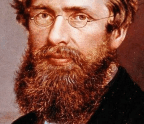
In March 2020, just as Covid-19 was turning the world upside down, I found myself in Dallas, Texas, in the room where Lee Harvey Oswald had shot and killed President Kennedy almost 60 years earlier. The former Texas School Book Depository has been turned into a museum about Kennedy’s life and death, offering a sober, measured account of the events of November 1963. On the quiet streets outside the museum, however, I encountered a few street stalls, whose occupants were peddling a very different view of the assassination. Here all manner of conspiracies were given full voice, ones that I’m sure you’ll all be familiar with: the FBI, or the CIA, or the mafia, or the Soviets, or the Cubans, or some combination of them had undoubtedly orchestrated the killing of the 35th president of the United States.
It might seem that the museum is offering the mainstream view, but according to opinion polls, more Americans believe in some form of conspiracy surrounding the killing of JFK than the official version (as stated by the 1964 Warren Commission) that Lee Harvey Oswald acted alone. For my new HistoryExtra podcast series Conspiracy, I’ve been exploring this and a number of other conspiracy theories about the past, to try to establish why they are so pervasive in our modern world and whether any of them might actually be true.
One man who wanted to keep an open mind on the Kennedy assassination was the investigative journalist Gerald Posner, whose 1993 book remains a definitive work in support of the argument that Lee Harvey Oswald did indeed act alone. When I spoke to him, he explained that this was far from his original intention. “Sometimes people will say to me that I must have wanted to just say it was Oswald alone to be a contrarian or whatever else and that I already had my mind made up. And I feel like saying, ‘You know nothing at all about journalism.’ The greatest story to return with is the story that proves, with credible evidence, that there was a conspiracy in the murder of the president. You want the biggest possible story if you’re the journalist. You don’t want to come back and say: ‘Oh by the way, I think the Warren Commission got some things wrong, but in the end they got the right conclusion.’”




